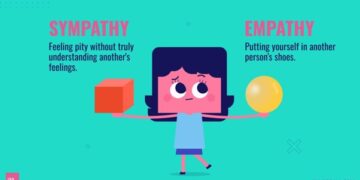
In psychology and sociology, masking is the process in which an individual disguises his/her natural personality or behavior to conform to social pressures, to fight any harm or agitation.
Personality is any person’s collection of unified behavioral pattern, cognitive and emotional threshold, how the person adjusts to life, unique personality traits such as adaptability, mindful or arrogant, dishonest etc. The character traits are interrelated patterns which comprises of human personality. The traits can change over long periods of time. Personality comprises of moods, attitudes, opinions and is most clearly expressed in interactions with other people. It includes behavioral characteristics, both inherent and acquired, that distinguish one person from another. Personality is a base to our relationship with the society.
Some people mask their original personality, which can be described as hiding one’s emotion by portraying another emotion, most often, people conceal negative emotions with positive emotions. Masking is to behave in certain ways that would help one hide or curb their emotions that are not approved by those around them. In the context of mental health, masking refers to underplaying or overplaying of behavior; it also refers to coping mechanism of an individual. It can be hiding their true thoughts, feelings, or difficulties related to their circumstances or mental health. It involves presenting oneself in a way that conforms to societal expectations or norms, even if it undermines what one is truly experiencing internally.
People engaged in masking for fear of stigma, judgment, rejection, or a desire to maintain a sense of normalcy. Masking can occur in different forms and involves suppressing emotions. It is important to admit that masking is not a healthy or sustainable strategy. Open communication, seeking professional help, and cultivating a supportive network of understanding individuals can be more beneficial in promoting mental well-being.
How can you tell if someone is masking? Usually criminals change their body language, tone of voice, or facial expressions around specific people or in certain situations. They make less eye contact. Identifying whether someone is masking their true emotions or mental health can be challenging at times. I quote here Rahul Gandhi – Congress Vice President and the leader of opposition in Loksabha who is caught in his masking games several times. Facing flak on social media, and from Gujarat BJP leaders, after news emerged that Rahul Gandhi’s name was entered in a register meant for “non-Hindu” visitors at Gujarat’s Somnath temple, the Congress spokesman has said the party vice-president is a Hindu who wears the sacred thread and dismissed reports on the entry in contention as “fraud’’ and a “conspiracy”.
Gandhi, the leader of opposition in the Lok Sabha, took a swipe at the ruling BJP in the House on Monday, saying those who call themselves Hindus are engaged in “violence” and “hatred” round the clock. Goa CM demanded apology after Rahul’s dig at BJP calling them ‘not Hindus’
In another incident as Congress leader Rahul Gandhi was leaving after his first speech in Parliament after being reinstated as an MP, he blew a kiss to the Bharatiya Janata Party (BJP) MPs. Calling Rahul’s behaviour inappropriate, women MPs from BJP filed a complaint with Lok Sabha Speaker Om Birla. Rahul Gandhi’s behaviour is termed as many psychologists and psychiatrists that he is facing Identity Crisis, and he is Genetically or Compulsive liar and born as a crooked person and he carried a masked behaviour.
Even Mahatma Gandhi had a masked personality. He was self-centred, and biggest hypocrite. In his whole life Gandhi kept on shouting that, he supports ahimsa. However, at the time of the Second World War, he himself sent the Indian army to fight from England’s side. Gandhi was awarded the highest civilian award Kaiser-I-Hind (The British Ratna) for his loyalty towards the British Raj by providing Punjab regiment soldiers for World War II. Gandhi never opposed or would never get involved in any disagreement with wealthy people like Birla, Bajaj, Tata, Wadia etc. Also, he took care not to offend Nehru who knew very well that M.K.Gandhi was a British plant (British supporter). Sarojini Naidu’s, statement says it all, “It costs a lot to keep Bapu in poverty”, confirming that money was spent to build a false favourable image of Gandhi among the Indian public. Well, Gandhi was a fully masked personality. M.K.Gandhi’s personality is an example of inconsistent emotions. The person consistently displays emotions that seem contrasting with reality and circumstances. He may have appeared compassionate, overly cheerful, positive, or composed, but was a biggest hypocrite. He cheated deadly even when facing challenging situations. There was a noticeable difference in his public and private life behaviour. On many occasions he let his guard down and show his slimy side, his greed, his lust which he couldn’t disguise.
Masking refers to an individual’s ability of hiding his identity intentionally. It often occurs unconsciously over time as an individual receives negative feedback for his true behavioural presentation. Masking also is referred to as camouflaging. Social masking is most common. It refers to when someone engages in social behaviors that do not come naturally to them, such as complimenting people unnecessarily, overfriendly behaviour, showing off false status/wealth etc.
When people mask their behaviour, consciously they change their body language, tone of voice, or facial expressions around specific people or in certain situations. Perhaps they try to force themselves to make eye contact depending on the person. Insecurities could make someone avoid eye contact. A common sign of lying is minimal eye contact. If someone’s being deceptive, they may unintentionally avert their gaze.












































